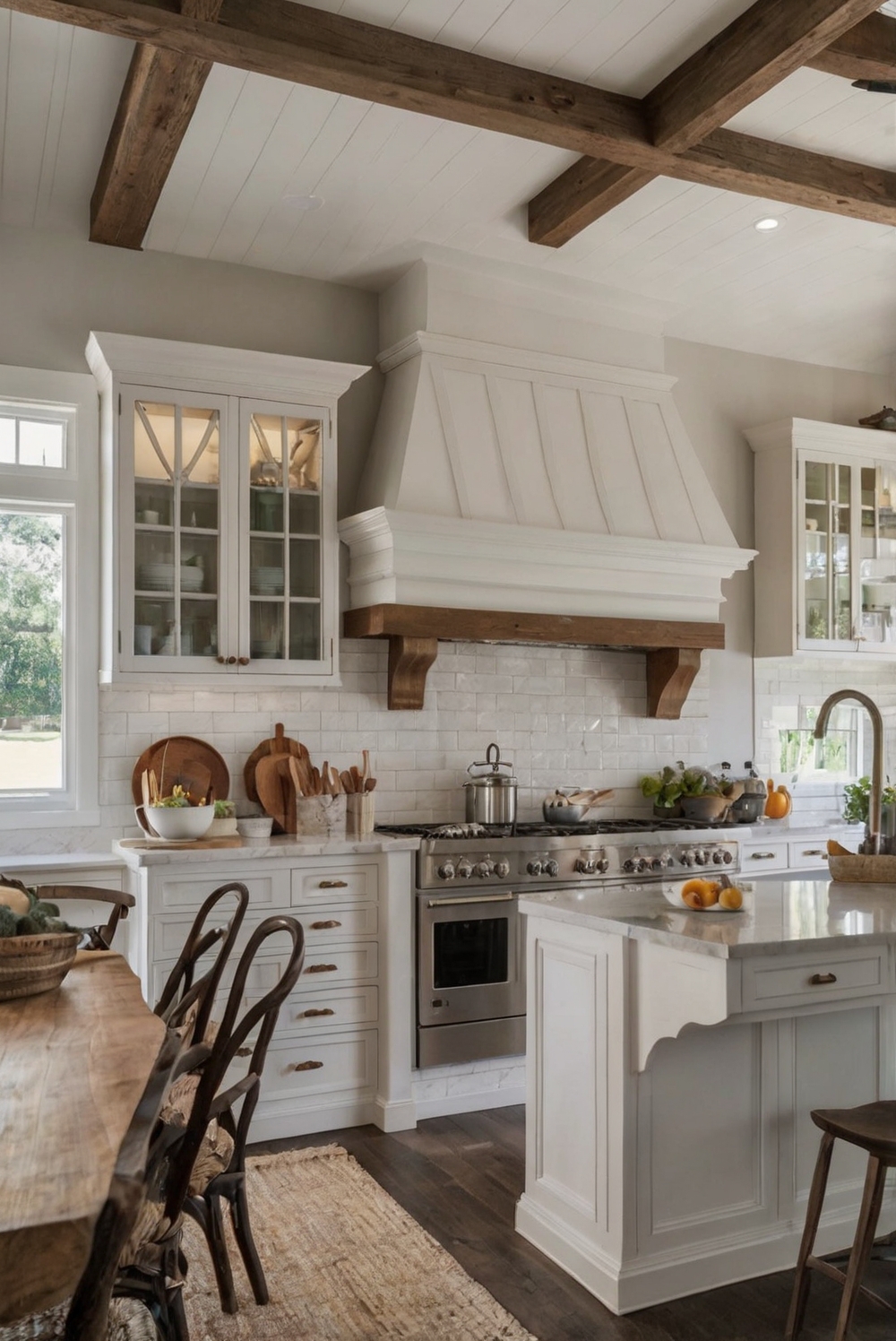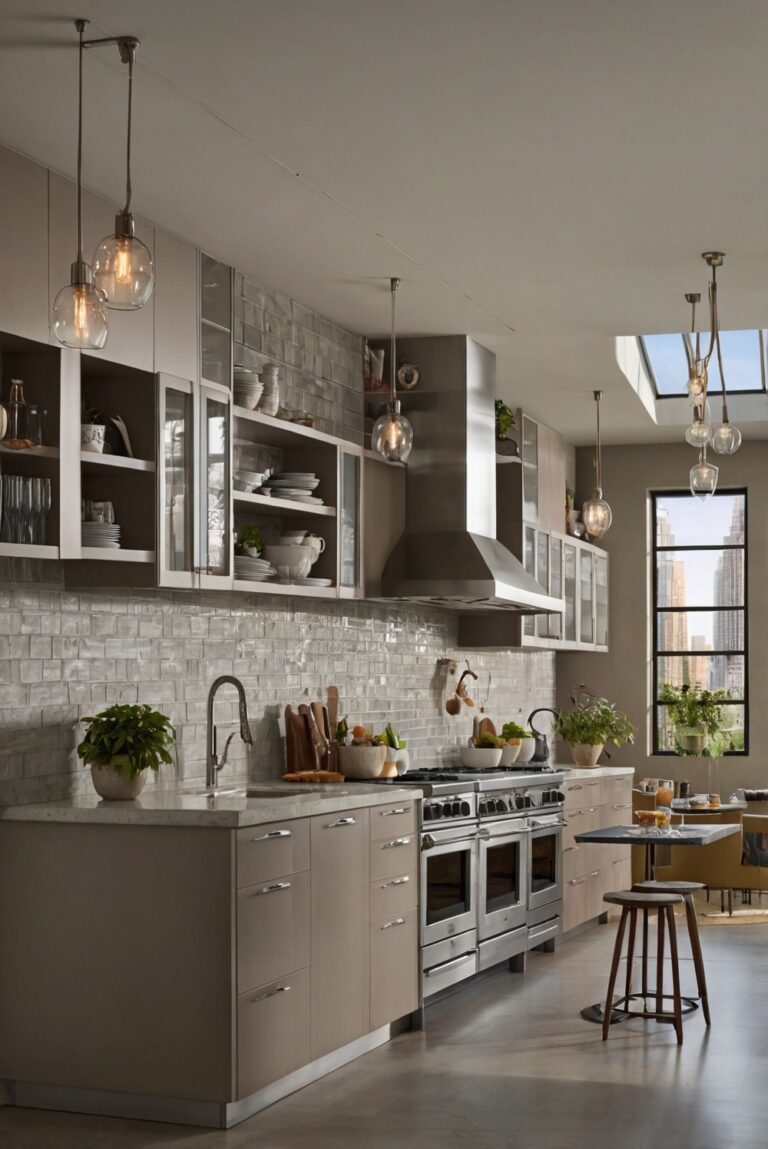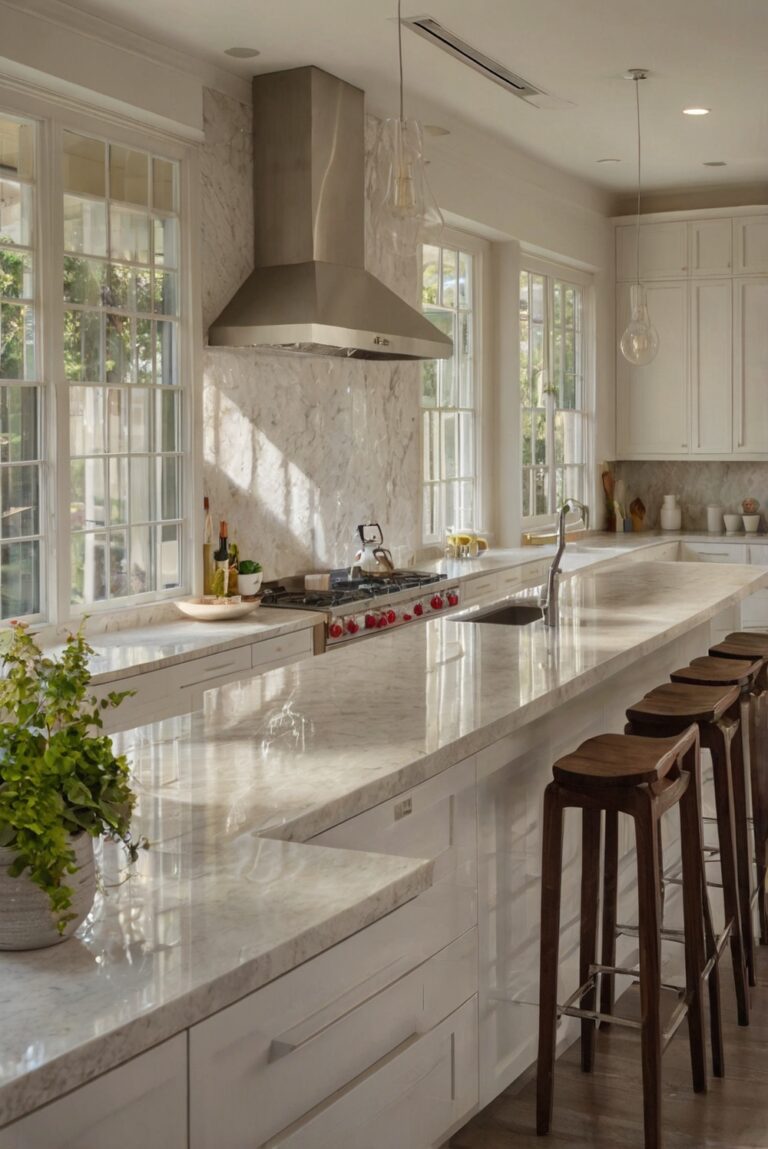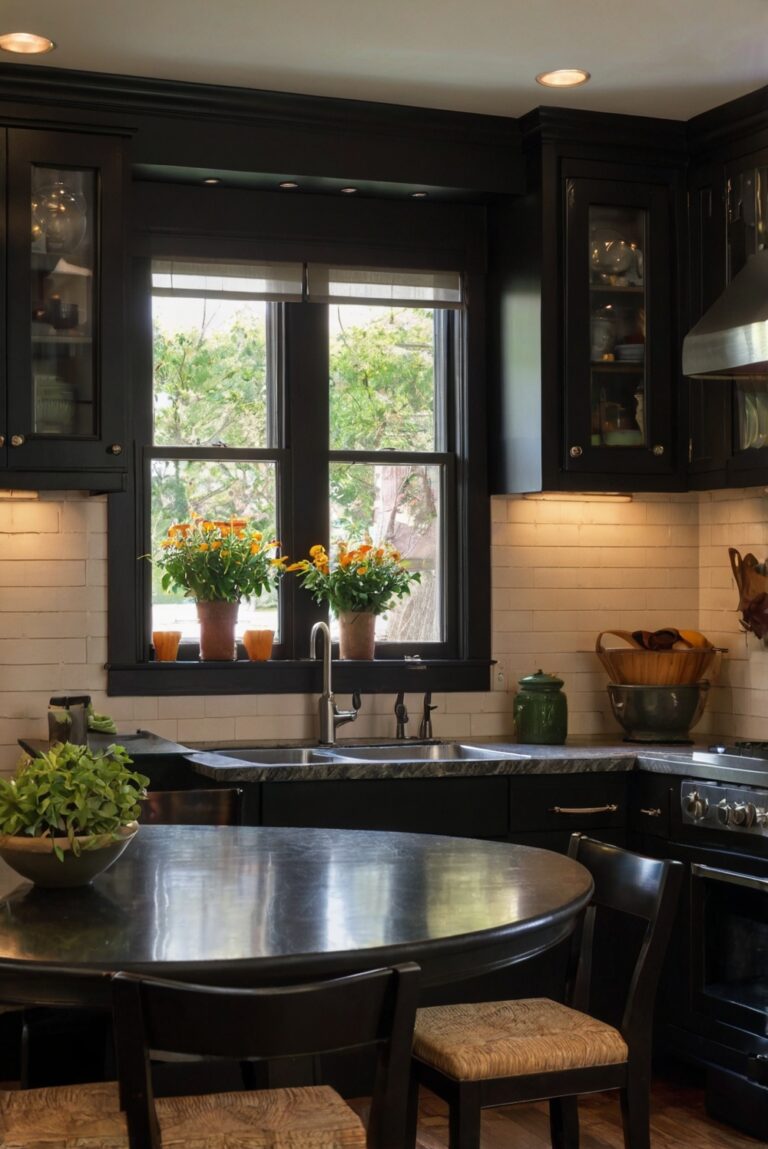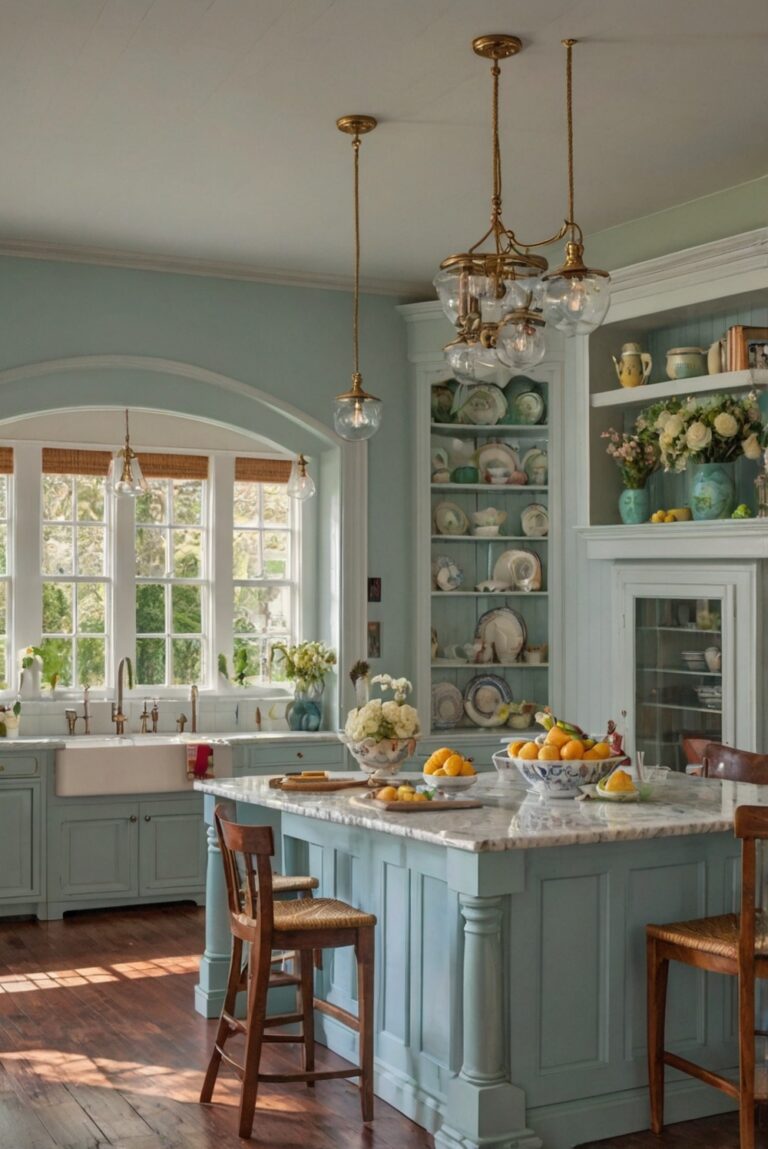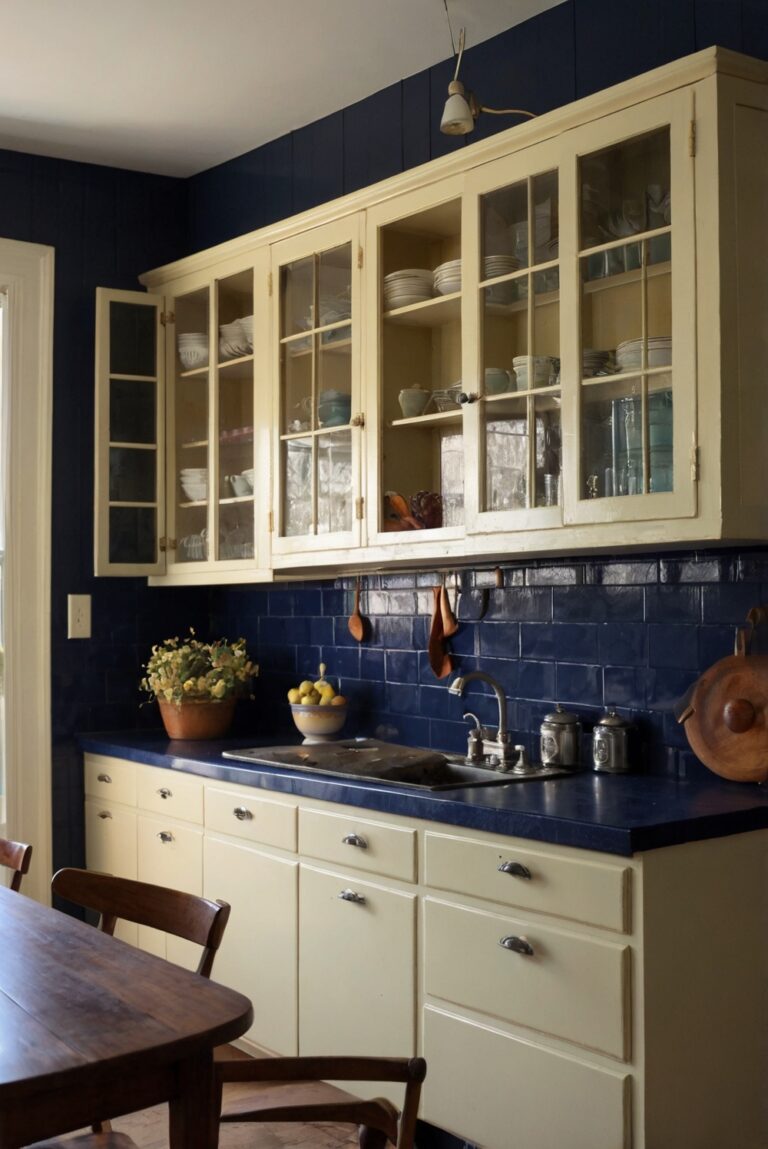Discover the key steps to selecting the ideal sink for your kitchen in this expert interior designer’s daily routine. Upgrade your space with the perfect choice!
How to choose the perfect sink for your kitchen?
In order to choose the perfect sink for your kitchen, consider the following factors: the size of your kitchen, your cooking and cleaning habits, and the overall style of your home decor interior design. The sink should complement the design of your kitchen, whether it’s a modern, minimalist, or traditional style. Additionally, think about the material of the sink – stainless steel, porcelain, or composite – as each has its own benefits and maintenance requirements.
For a seamless home interior design, coordinate the sink color with your kitchen color scheme. If you have a small kitchen, opt for a space-saving sink with a single bowl. Larger kitchens can accommodate double bowls or farmhouse sinks for added functionality.
Ensuring proper space planning is essential when choosing a sink. Measure the available space in your kitchen and decide on the configuration that best suits your needs. Remember to also consider the depth of the sink for comfortable use and easy cleaning.
For a well-designed kitchen, consult with interior designers or kitchen designers for expert advice and recommendations. They can help you select the right sink that fits your lifestyle and design preferences. Additionally, consider the wall paint color and how it complements the sink to create a harmonious look in your kitchen.
Overall, choosing the perfect sink for your kitchen involves careful consideration of your needs, style preferences, and practicality. By following these tips, you can select a sink that enhances the functionality and aesthetic appeal of your kitchen, making it a focal point of your home interior design.
When choosing a sink for your kitchen, it is important to consider the following factors:
– Size: Make sure the sink fits comfortably in your kitchen space and is large enough to accommodate your needs.
– Material: Choose a durable material such as stainless steel, granite composite, or fireclay that is resistant to stains and scratches.
– Style: Consider the design of your kitchen and choose a sink that complements the overall aesthetic.
– Installation: Decide whether you want a top-mount, undermount, or farmhouse sink based on your preferences and existing cabinetry.
– Functionality: Think about how you will be using the sink and choose features such as extra-deep bowls, integrated drainboards, or garbage disposal compatibility.
Here are some important points to keep in mind when selecting the perfect sink for your kitchen:
– Budget: Determine how much you are willing to spend on a sink and choose one that offers the best value for your money.
– Maintenance: Consider the level of upkeep required for different sink materials and choose one that fits your cleaning preferences.
– Accessories: Look for sinks that come with accessories such as grids, baskets, and cutting boards to enhance usability.
– Compatibility: Ensure that the sink you choose is compatible with your existing plumbing and countertop materials.
– Warranty: Check the warranty offered by the manufacturer to ensure you are covered in case of any defects or damages.
Make an informed decision by considering the following information when selecting a sink for your kitchen:
– Size Matters: Measure the available space in your kitchen to determine the size of the sink that will fit best.
– Material Selection: Choose a material that suits your cooking and cleaning habits, as well as the overall style of your kitchen.
– Configuration Options: Decide on the number of bowls and additional features like cutting boards or colanders based on your needs.
– Installation Considerations: Consult with a professional to determine the best installation method for your chosen sink.
– Brand Reputation: Research different sink brands and read reviews to ensure you are investing in a quality product.
Consider the following tips to ensure you choose the perfect sink for your kitchen:
– Think about the tasks you will be performing in the sink and choose a size and configuration that will accommodate them.
– Take into account the design and style of your kitchen to select a sink that will enhance the overall look.
– Research different sink materials and their pros and cons to make an informed decision.
– Consult with a kitchen designer or contractor for expert advice on choosing the right sink for your space.
– Don’t forget to consider the practical aspects of installation and maintenance when selecting a sink.
Remember these key points when choosing the perfect sink for your kitchen:
– Size, material, style, installation, and functionality are crucial factors to consider when selecting a sink.
– Set a budget and consider maintenance requirements, accessories, compatibility, and warranty coverage.
– Measure your kitchen space, choose a suitable material, decide on configuration options, consider installation methods, and research brand reputation.
– Think about your cooking and cleaning habits, consult with professionals, and ensure the sink complements your kitchen design.
– Consider the practicality and aesthetics of the sink to make the best choice for your kitchen.
1. What are the different types of kitchen sinks available?
There are several types of kitchen sinks to choose from, including undermount, drop-in, farmhouse, and apron sinks. Undermount sinks are installed beneath the countertop for a seamless look, while drop-in sinks are placed on top of the counter. Farmhouse sinks have a large, deep basin and an exposed front panel, adding a touch of elegance to your kitchen. Apron sinks are a type of farmhouse sink with a front panel that extends beyond the cabinet. Consider the size, material, and configuration of the sink to determine which type will best suit your kitchen.
2. How do I choose the right size sink for my kitchen?
When choosing the size of your kitchen sink, consider the dimensions of your kitchen cabinets and the available space. Measure the width, depth, and height of the cabinet where the sink will be installed to ensure a proper fit. Also, think about your household’s needs and cooking habits. A larger sink may be more convenient for washing large pots and pans, while a smaller sink may be sufficient for a smaller household. Additionally, consider the depth of the sink to accommodate your cooking and cleaning needs.
3. What materials are best for kitchen sinks?
Kitchen sinks are available in a variety of materials, including stainless steel, cast iron, granite composite, fireclay, and copper. Stainless steel sinks are durable, easy to clean, and resistant to heat and stains, making them a popular choice for many kitchens. Cast iron sinks are heavy and durable, with a classic look that can complement traditional kitchen designs. Granite composite sinks are scratch and stain-resistant, while fireclay sinks offer a smooth, glossy finish that is easy to clean. Copper sinks add a unique, rustic touch to your kitchen but require regular maintenance to prevent patina buildup.
4. How do I choose the right configuration for my kitchen sink?
The configuration of your kitchen sink refers to the number of basins and additional features, such as drainboards, cutting boards, and colanders. Single-basin sinks are versatile and can accommodate large items, while double-basin sinks allow for multitasking and separate washing and rinsing areas. Consider your cooking and cleaning habits to determine which configuration will best suit your needs. Additionally, think about any additional features that may enhance the functionality of your sink and make meal preparation more convenient.
5. What other factors should I consider when choosing a kitchen sink?
When choosing a kitchen sink, consider the installation method, maintenance requirements, and overall design of your kitchen. Undermount sinks offer a sleek, seamless look but require professional installation, while drop-in sinks are easier to install but may have a visible rim. Think about the maintenance requirements of the sink material and choose one that fits your lifestyle and cleaning habits. Additionally, consider the design and style of your kitchen to ensure that the sink complements the overall aesthetic. Take your time to research and compare different options before making a decision to choose the perfect sink for your kitchen.

